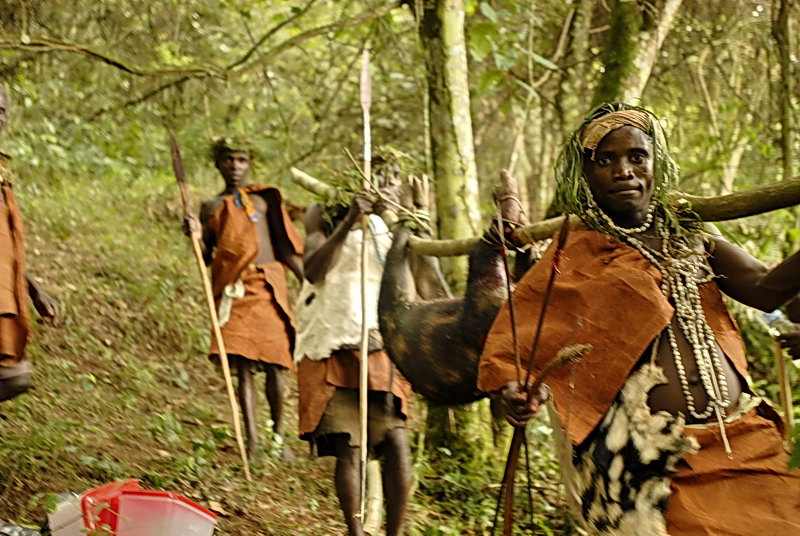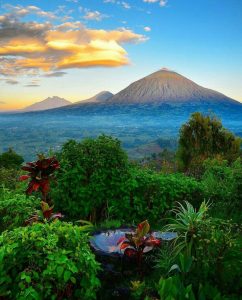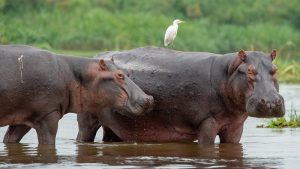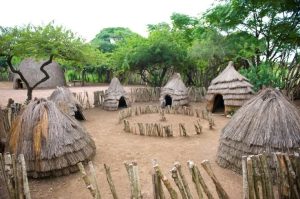Batwa Culture and History
Uganda is renowned for its rich animals, varied terrain, and lively culture. The Batwa people are a distinctive and historically important group among the several ethnic groups that call Uganda home.
>Up until the early 1990s, when these regions were designated as national parks, the Batwa, an indigenous group known as the “keepers of the forest,” resided in the forests of western Uganda. Their rich history and culture are deeply entwined with the trees. Batwa Culture and History
Their presence is a genuine illustration of the coexistence of nature and humanity.
The Batwa’s history
With origins dating back thousands of years, the Batwa people are one of Uganda’s oldest indigenous groups. Pygmy tribes like the Batwa have lived in Africa’s tropical jungles for over 60,000 years, according to some anthropologists.
They were found in the western half of Uganda, specifically in the woods of Bwindi, Mgahinga, and Semuliki. The forest and its inhabitants, especially the mountain gorillas, coexisted peacefully with them. They found refuge and a means of subsistence in these forests.
When these woodlands were designated as national parks, the Batwa people’s life were drastically altered. They became conservation refugees in a strange, unforested world after being forced out of the park with little to no recompense.
The Culture of the Batwa
Usually small and tight-knit, Batwa villages have a strong sense of belonging. They depend on one another for support and reside in extended family groups.
Even though elders frequently have a lot of influence in their communities, they place a high value on collaboration and group decision-making.
Historically, the Batwa have subsisted by hunting, gathering, and foraging. They are proficient hunters who employ age-old techniques like traps and bows and arrows. They collected fruits, tubers, and other forest products in addition to hunting birds and small game like duikers.
Stories, songs, and dancing are all part of the rich oral culture of the Batwa. From one generation to the next, their history, myths, and cultural knowledge are transmitted through these means of communication.
They may speak the languages of the majority groups in the areas where they live. But they frequently speak their own unique languages or dialects.
The Cultural Experience of the Batwa
In order to educate their children and spread awareness of their incredible heritage and customs, the displaced Batwa pygmies founded the Batwa Experience.
Giving guests the chance to learn about and participate in the traditional way of life, culture, and history of the Batwa people of Bwindi Impenetrable National Park is usually at the center of the Batwa cultural experience.
Batwa guides lead visitors on guided tours of Batwa settlements. The guests are given access to the Batwa guides’ stories, hunting methods, medicinal herbs, and forest ecology.
Visitors get the opportunity to watch and take part in traditional Batwa music and dance performances. These performances offer insight into the rich oral traditions of the Batwa people and are an essential element of their culture.
Elders of the Batwa people may also recite legends and stories that have been passed down over the ages. These tales frequently shed light on the history, spiritual beliefs, and relationship to the forest of the Batwa people.
In addition, tourists can observe Batwa craftspeople creating baskets, ceramics, and bows and arrows. And occasionally they can even buy their handcrafted items as mementos. Participatory workshops, such those on traditional cooking or crafting, can be incorporated into the cultural experience. In addition to learning how to make Batwa food, visitors can attempt making traditional crafts.
The opportunity to tour Batwa homes and engage with locals may be available to visitors. This gives us a closer, more intimate look at their everyday struggles and lives. Additionally, you might be able to try some traditional Batwa food, which frequently consists of game meat, roots, and wild fruits.
Batwa Communities
When visiting Batwa communities, visitors should exercise cultural sensitivity and respect. This include adhering to the rules set forth by tour operators, honoring regional traditions, and getting consent before taking pictures or recordings.
In addition to providing visitors with a singular and instructive experience of an intriguing indigenous culture, taking part in a Batwa cultural event supports these communities financially and increases public awareness of their cultural legacy and conservation initiatives.
For foreign visitors, the Batwa Cultural Experience costs $40; for foreign residents, it costs $40; and for East African residents, it costs UGX 40,000.
The Trail of Batwa
Visitors get a rare chance to interact with the native Batwa people who inhabited the Mgahinga forest through the Batwa Trail. The Batwa route, in contrast to the Batwa Cultural Experience, leads tourists further into the forest to view the Batwa’s ancient caves, hunting sites, and hideouts.
Batwa guides describe how they hunted and collected food, how they adapted to their forest environment, and the traditional usage of numerous plants. The trail experience includes demonstrations of traditional tasks including hunting, gathering, and building fires.
The trail leads to the Ngarama Cave, which the Batwa used as a shelter. And ends on the lower slopes of Mount Mgahinga. Guides inside the cave tell tales and perform customs related to their stay in these natural havens.
The fee of this experience is UGX 50,000 for East African residents, $80 for foreign non-residents, and $70 for foreign residents.
Difficulties the Batwa Face
Many Batwa have been compelled to work as agricultural laborers on the lands of other ethnic groups. Because they lost their ancestral lands as a result of deforestation and conservation initiatives. They are largely vulnerable and impoverished as a result of this shift.
Because they are displaced and have limited access to school and work prospects, many Batwa families are struggling financially. Children from Batwa areas frequently encounter obstacles to their education, such as prejudice and a lack of resources.
With few facilities and insufficient healthcare infrastructure in their communities, the Batwa continue to face major barriers to accessing healthcare.
The preservation of Batwa culture is under danger since displacement has resulted in the deterioration of indigenous customs and language through interfaith unions and modernization.




